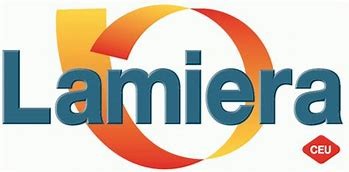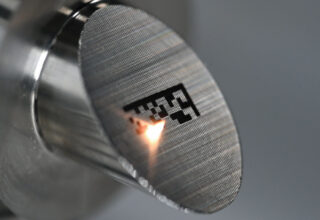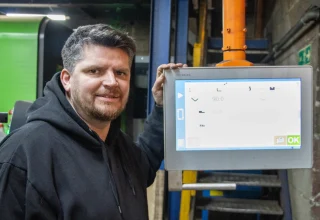
In the second quarter 2023, the index of machine tool orders processed by the Economic Studies Department & Business Culture Centre of UCIMU-SISTEMI PER PRODURRE marked a 21.8% fall compared to the period April-June 2022. The absolute value of the index stood at 80.9 (base year 2015=100).
The outcome was due to the reduction in order intake, registered by manufacturers, both in the foreign and in the domestic markets.
In particular, the orders received from abroad went down by 10.5% compared to the same period of the previous year. The absolute value of the index was 88.2.
On the domestic front, collected orders highlighted a 38.3% decrease, showing an absolute value of 70.2.
On a half-yearly basis, the collection of orders dropped by 23% compared to the first six months of 2022, for an absolute value of the index standing at 103. Domestic orders decreased by 29.9%, for an index value of 97.5; foreign orders recorded an 18.2% downturn, showing an absolute value of 107.1.
Barbara Colombo, president of UCIMU-SISTEMI PER PRODURRE, stated: “The data just processed by our Economic Studies Department & Business Culture Centre confirm the first signs of a slowdown, which we had detected over the last few months and which we had already reported at the Shareholders’ Meeting at the beginning of July”.
“With particular reference to the domestic market, the decline we experienced in this first part of 2023 has mainly a reason related to the specific characteristics of the sector. In other words, the trend could not go on keeping the same pace as in the post-pandemic two-year period. That said, we cannot ignore the fact that the fall is also due to the uncertain conditions, in which companies are operating today”.
“Currently, our enterprises are still working well, engaged in producing the last part of the orders collected last year. Owing to this, our turnovers at the end of 2023 will still be good. On the contrary, if we are not able to reverse course already after the summer break, the first months of next year may be different”.
“For this reason – also considering the process of digital transition that the Italian manufacturing industry is facing – we ask the Government authorities to act as soon as possible, in order to confirm and strengthen the Transition Plan 4.0. In our opinion, it must structurally provide for a modular system of tax incentives that can be combined and cumulated and may reward more those who invest in new machines, whereby digitalisation also enables sustainability”.
“In particular, we think that, in addition to the first measure – the one that is currently in force, consisting in the tax credit for investment in state-of the-art digital production technologies – there should be another tax credit for investments in machines that are integrated together to create a system implementing the two value chains, the physical and the digital one. Finally, there should be a third measure that can ensure a tax credit for sustainability, in order to push enterprises towards “green manufacturing”, in line with the European directives”.
“Only in this way, we could support the continuous and progressive innovation process that should accompany our enterprises, ensuring that all of them have a development appropriate to their paths: pushing those that are already ahead in their digitalisation process to work on sustainability as well, without leaving behind those companies that have just approached the issue of interconnection of systems and machines”.
“On the foreign front, the drop registered in this quarter, also considering the almost complete saturation of the production capacity of our companies, does not worry us. The trend of the collection of orders abroad over the last few years was rather linear, without particular peaks and troughs. The goal for the near future can only be to work more with foreign users, also in light of the near and friend-shoring developments we are witnessing, after the public health crisis and the outbreak of the conflict between Russia and Ukraine.”
“For this reason, UCIMU is committed to the implementation of new initiatives to support the internationalisation activities of enterprises. The last one in order of development is the creation of the Business Network in Vietnam, just launched a few days ago, whose aim is to facilitate companies’ penetration into one of the most interesting and dynamic areas in the world”.
“We ask the government authorities to increase the resources, provided by ICE-Italian Trade Agency and MAECI- Ministry of Foreign Affairs and International Cooperation, for the invitation of foreign users to international trade fairs held in Italy and for the participation and promotion of Italian collectives in exhibitions in the countries of greatest interest. On the other hand, – concluded Barbara Colombo – we welcome the refinancing of the 394 Fund, managed by SIMEST together with MAECI. This is open for the use of companies of all sizes and provides for the refinancing of the legal provision that economically supports, also on a non-repayable basis, the internationalisation processes of companies, such as participation in trade fairs, missions and events abroad. It also includes the introduction of measures that, in a subsidiary way, support and reward enterprises’ investments in economic, environmental and social sustainability, also in line with the new European directives”.













